


There is nothing worse in approaching God than to go in a proud way.
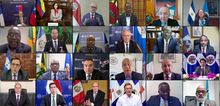
The Organization of American States declares 27 October as International Day of Religious Freedom. Evangelicals participated in the sessions defending the life and the family.

Happiness is so simple to find: you just need to pay attention to what God says.

I had tried a number of solutions. Buying a new mattress. Reducing caffeine. Eating better. I didn’t know what else to try until the major culprit revealed itself: technology.

There were 232,200 abortions in France in 2019. A draft law which proposes to extend the time limits for resorting to abortion to 14 weeks, will be debated soon.

Growth in the Christian life depends on knowing the will of God and obeying it, day by day.

Demonstrators called for “the protection of the right to life from conception”, and “an end to euthanasia and surrogacy, because children are not goods”.

A lot of our issues lie in the interpersonal domain. Relationships shape all of us, including the way we relate to ourselves and to God.
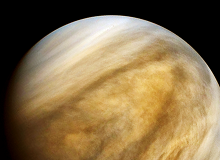
A tiny, rare phosphine molecule does not appear to be sufficiently solid evidence to support such an important hypothesis as the existence of life on Venus.
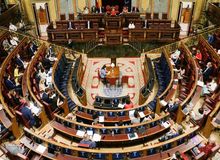
The amendments of the opposition parties have been rejected. “Such a sensitive issue needs a broad social and political consensus”, the Spanish Evangelical Alliance says.

The State of Theology survey released by LifeWay Research and Ligonier Ministries “reveals that many evangelicals express erroneous views that mirror the broader U.S. population”.

God teaches us a spiritual law in the Bible that is always fulfilled: what we sow, is what we are going to reap.

If Jesus is who he claims to be, he is worthy of all your faith, your worship, your love.

“Evangelicals are sadly drifting away from God's absolute standard in Scripture”, says the chief academic officer of Ligonier Ministries, one of the authors of the survey.

God knows the suffering as much as we do. Only in Him can we find consolation.

How often do we petition Christ for the petty things, while ignoring the far greater gifts that he wants to give us?

The eased regulations announced by the government during the Covid-19 pandemic are likely to increase the number of abortions in 2020.

Can we stand before jealousy? Moses’ conduct in this story gives us four pointers which will help us.

Our food is nothing more than the daily reading of the Bible and the daily contact with God in prayer.

After adrenaline there is always a settling period. God is the only one who can motivate us to lift our flattened hearts up toward Him.

Packer used to say that his conversion had not been spectacular. The preacher showed him at the end of the sermon that, to be able to attend the party, he had to come to Christ.

Few decisions are as important as the one about the person with whom you are going to spend the rest of your life.
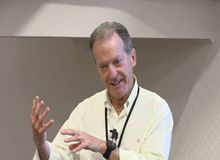
“The distinction between believer and disciple is something that we have made up”, Greg Ogden, leader of the Global Discipleship Initiative, points out.
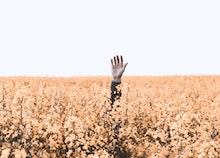
However safe and self-sufficient we felt, a virus has reminded us of the fragility of life and has brought us face to face with death.

God does not need extraordinary people, only people willing to put themselves in His hands.

Las opiniones vertidas por nuestros colaboradores se realizan a nivel personal, pudiendo coincidir o no con la postura de la dirección de Protestante Digital.